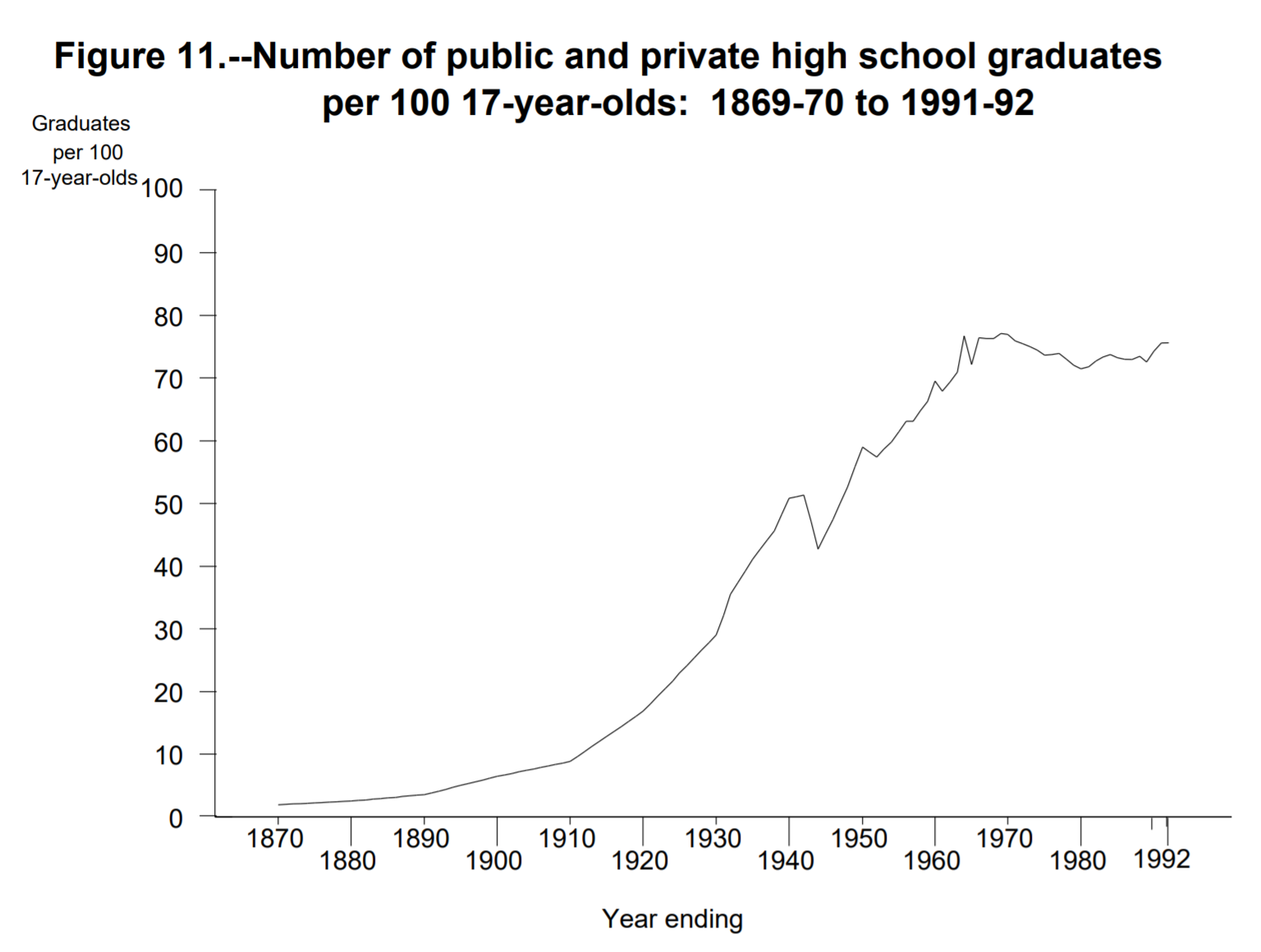
Horace Mann's Legacy

[Wayzata High School]
In 1848, Horace Mann retired from his MBOE position. By then, he had successfully convinced the populace to prioritize universal public education for the first time.
"All these changes, great as they were in themselves, had their chief significance as indications of a new public spirit.
The great work which had been accomplished had been to change the apathy and indifference of the people toward the common schools into appreciation and active interest. This, once secured, was a guarantee of future progress, and with it nothing would be impossible.
In achieving this result, Horace Mann's preeminence is indisputable. Much had been done before his time... But the great body of the people of Massachusetts were as unmoved by all that his predecessors had done as the depths of the ocean are unmoved by the winds that agitate its surface.
[...] For fifteen hours a day for nearly twelve years, without a day for recreation, he gave himself to the work of convincing and moving the Massachusetts public. He sowed beside all waters.
It is for this reason that popular opinion has come to associate all modern educational reforms with the name of Horace Mann."
(The Evolution of the Massachusetts Public School System, George Henry Martin, 1915)
Short-Term Impacts
After Massachusetts implemented compulsory education laws, other states followed suit. By 1918, every state had compulsory education.
Slowly hover over the United States map from left to right



































































When States Enforced Compuslory Education (Data from InfoSource, 2019)
Horace Mann's principles and the influence of his Common School Journal remained fresh in people's minds for many decades following his retirement.
Inspired by Mann, Americans continuously pressured legislators to improve the access and quality of public education.
"1865-1877: African Americans mobilize to bring public education to the South for the first time. After the Civil War, and with the legal end of slavery, African Americans in the South make alliances with white Republicans to push for many political changes, including for the first time rewriting state constitutions to guarantee free public education. In practice, white children benefit more than Black children."
(Historical Timeline of Public Education, Race Forward, 2006)
Long-Term Impacts

[A modern free public school, NPR, 2016]
Mann left a lasting legacy by establishing the foundation for a high-quality tax-supported education for all. Today, $706B goes to public education in America.
"Definite steps were taken towards State direction of education at public expense, under Horace Mann's influence. Following him came a marked expansion in the scope of public education."
(Public Documents of Massachusetts, Volume 1, 1930)
He was also influential in the development of teacher training schools. There are ~3.2 million public school teachers today; before Mann, teaching wasn't even a professional career.
Before the Common School Movement, only 55% of children received any schooling. Today, the high school graduation rate is over 85% — one of the world's highest.

[120 Years of American Education: A Statistical Portrait, U.S. Department of Education, 1993]
Barriers Broken
Horace Mann fundamentally changed the trajectory of America's education system.
Many modern Americans believe that free education at the government's expense was a founding principle of the country, not knowing the financial, racial, and gender barriers which countless students faced in getting an education that could significantly improve their quality of life.
Horace Mann caused a major shift in societal views on universal education, and as a result, all American children today—regardless of race, wealth, or gender—are able to receive a free, public, high-caliber education.
"High on the list of great Americans, beside the names of Franklin, Washington, Jefferson, and Lincoln, stands the name, Horace Mann, father of our system of free public schools. He taught that even as plants can be improved by cultivation, people can be improved thru education. His faith in the people, in the free common school, and in the blessings of self-government was so great that he gave up his life to the cause of education. He went among the people urging them to make their schools better—to improve school buildings, to provide better books and equipment, to enrich the course of study, and above all to provide better teachers."
(Horace Mann: His Ideas and Ideals, Joy Elmer Morgan, 1936)